Cerastium tomentosum, commonly referred to as snow-in-summer or ‘, is a low-growing, mat-forming, evergreen perennial plant native to Northern Europe, North Africa, and North America. It is highly tolerant of dry conditions and possesses an abundance of soft grey-green foliage covered with short white hairs. The flowers are most often seen in white or very pale pink, but occasionally have deeper shades of pink or purple.
Cerastium tomentosum photos:
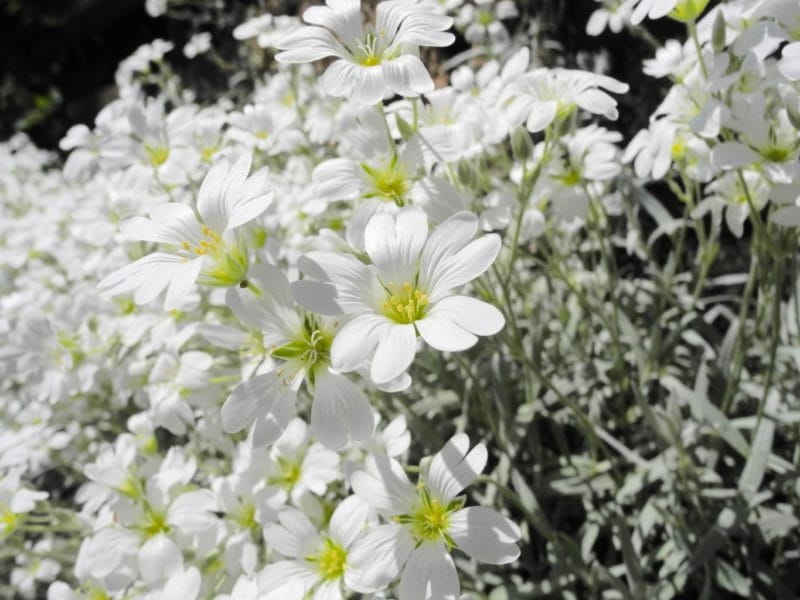
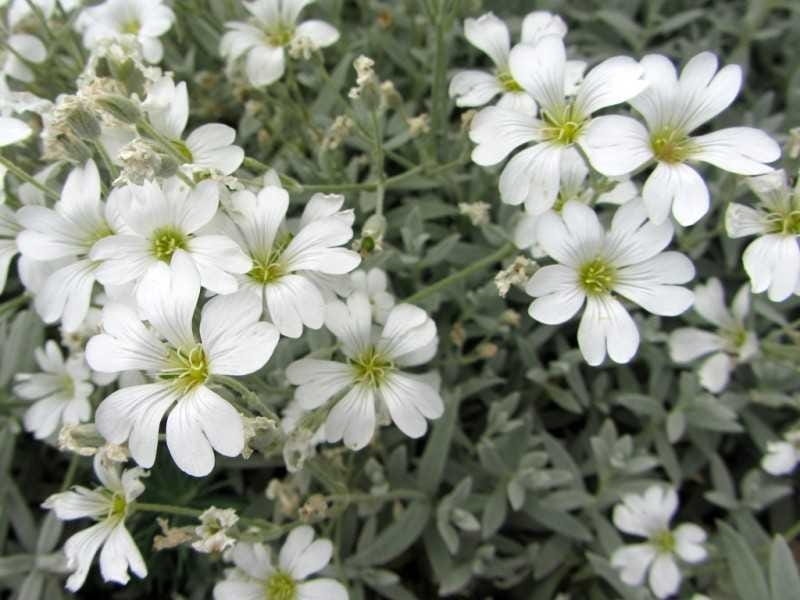

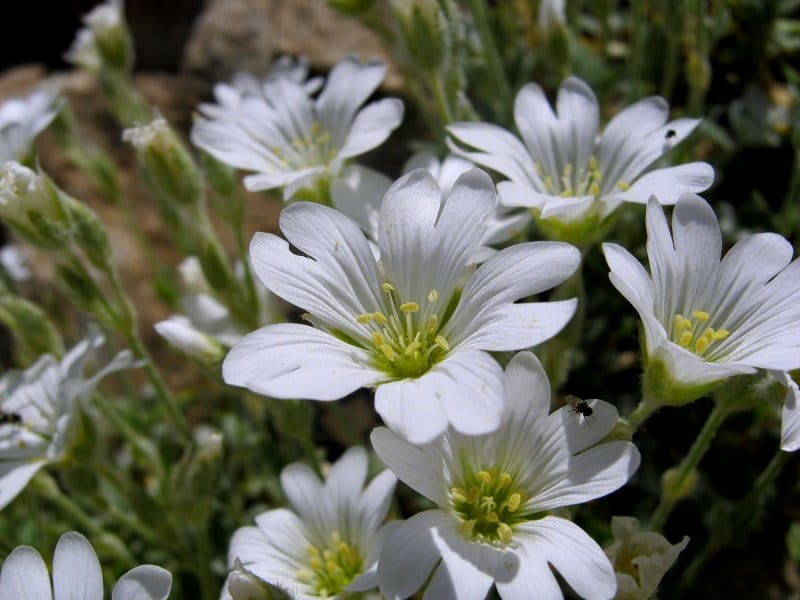

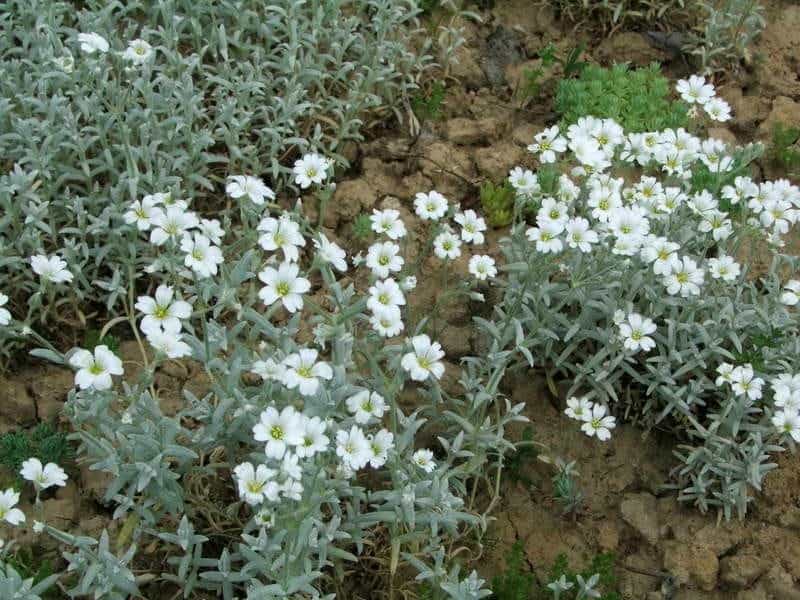
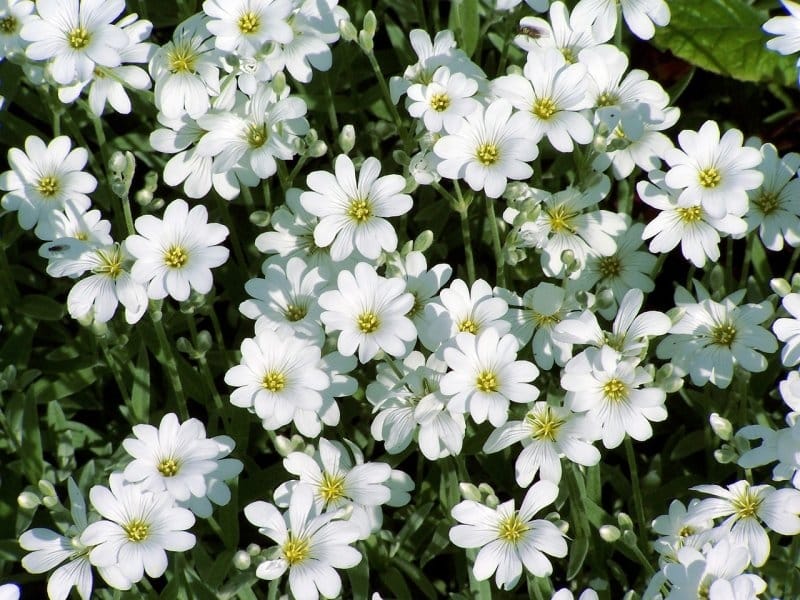
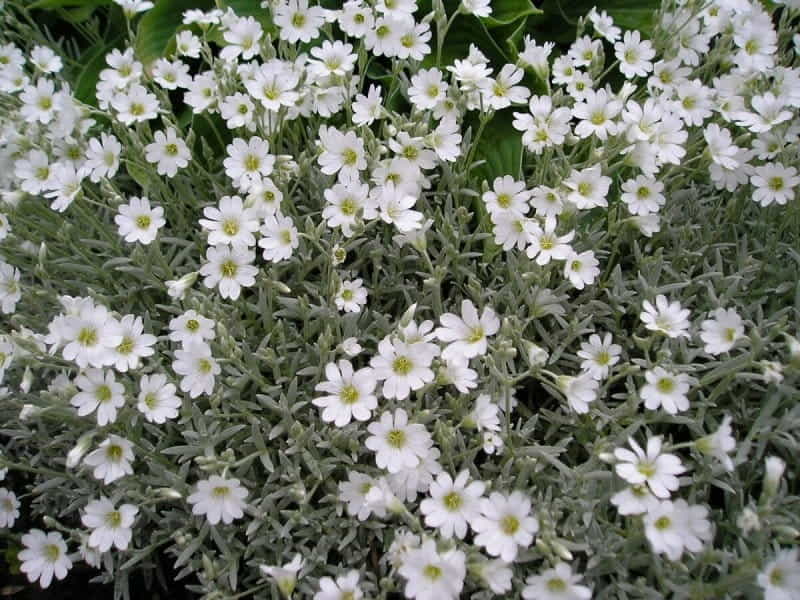
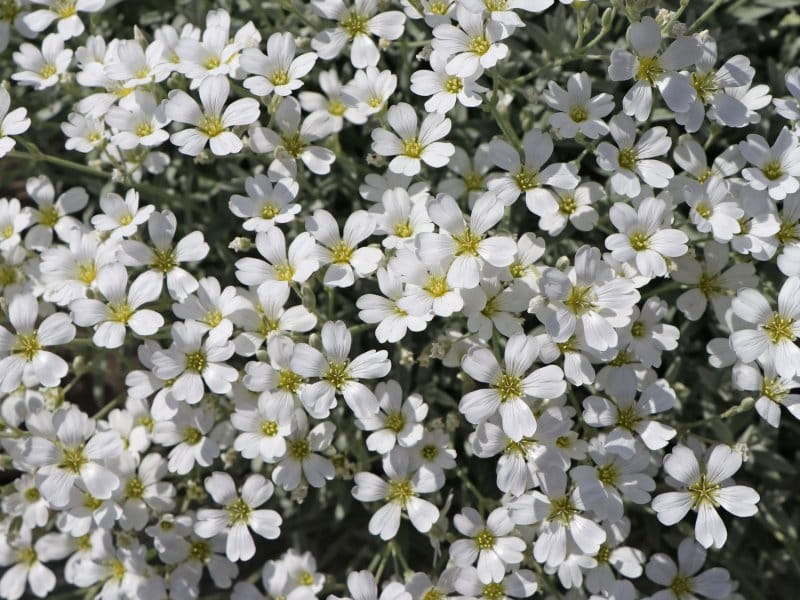
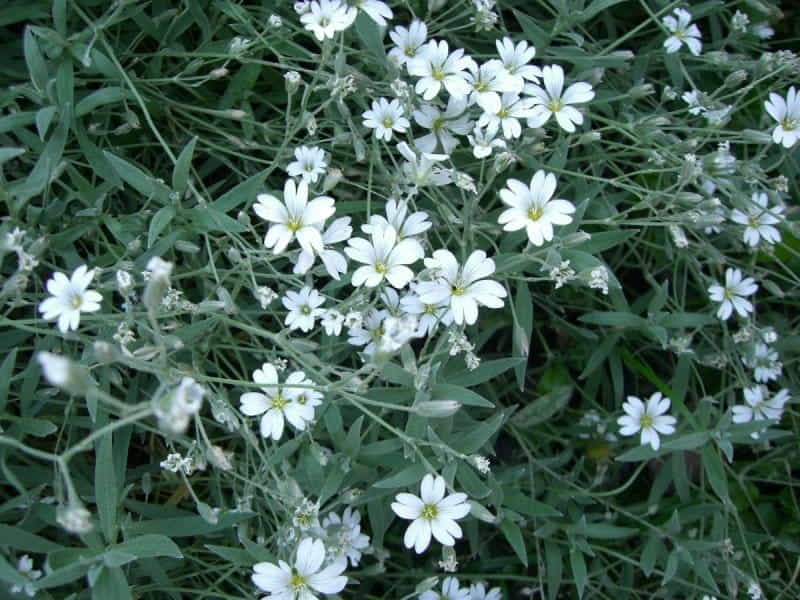
Cerastium tomentosum can be found in full sun or partial shade in a variety of soil types, preferring well-drained soil with moderate amounts of moisture. It can be found growing in boulder fields, rocky crevices, and around woodland edges.
Cultivation
Cerastium tomentosum can be propagated from seeds, although this is often not practical due to its slow rate of germination and its need for cool temperatures. It can also be propagated by stem cuttings taken in the fall and over-wintering in a cool, moist place.
Care
Cerastium tomentosum is a low-maintenance plant that requires little care. It should be trimmed back to remove dead or damaged stems and leaves. It can be fed with a balanced fertilizer and may need extra watering during periods of drought.
Uses
Cerastium tomentosum is popular in rock gardens and can be used as a groundcover or to fill in pathways. It is also useful in stabilization and erosion control, as well as providing a splash of color when mixed with other flowering plants.
